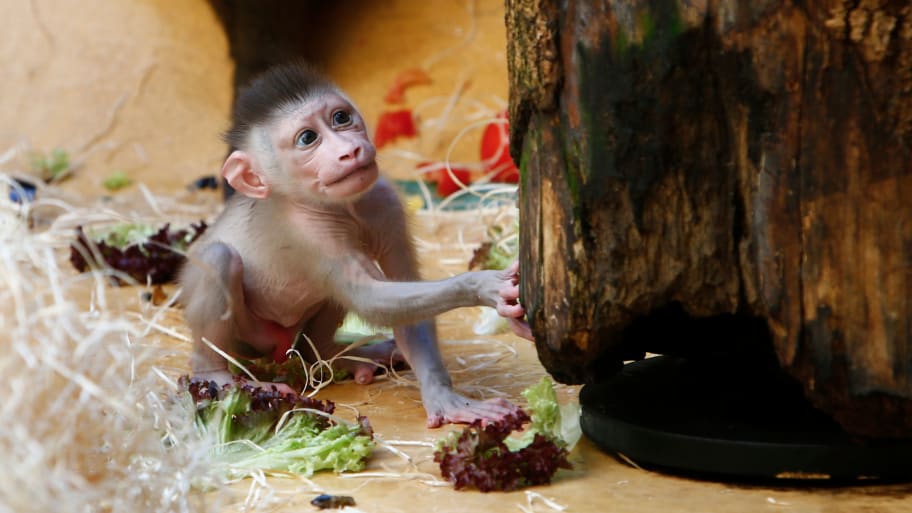Scientists Playing God Bring Us One Step Closer To The Zombie Apocalypse, Planet Of The Apes, And Jurassic Park
April 18, 2019
"Your scientists were so preoccupied with whether or not they could, they didn’t stop to think if they should." - Jeff Goldblum, Jurassic Park
As researchers from Yale University announced in the journal Nature that they can now revive parts of the brains of pigs hours after they were slaughtered, but the brains lacked the organized electrical activity that accounts for consciousness or awareness, that line from the first Jurassic Park movie kept running through my head.
The brains of dead pigs have been somewhat revived by scientists hours after the animals were killed in a slaughterhouse.
The Yale University research team is careful to say that none of the brains regained the kind of organized electrical activity associated with consciousness or awareness. Still, the experiment describedWednesday in the journal Nature showed that a surprising amount of cellular function was either preserved or restored.
The implications of this study have staggered ethicists, as they contemplate how this research should move forward and how it fits into the current understanding of what separates the living from the dead.
According to the abstract from Nature, where they describe the method used, the state their findings "demonstrate that under appropriate conditions the isolated, intact large mammalian brain possesses an underappreciated capacity for restoration of microcirculation and molecular and cellular activity after a prolonged post-mortem interval."
They are quite literally talking about advancementsthat could eventually bring the dead back to life.
Anyone else having visions of Dawn of the Dead, Night of the living Dead or more recent, The Walking Dead?
https://youtu.be/w8YfV0ZwU24
(If you appreciate stories like this, please consider donating to ANP to help keep us in this battle for the future of America.)

MAKING MONKEYS SMARTER WITH HUMAN GENES
In the meantime, scientists in southern China are creating "transgenic" monkeys, by introducing extra copies of the human gene believed to play a role in shaping human intelligence, according to a Technology Review article.
According to their findings, the modified monkeys did better on a memory test involving colors and block pictures, and their brains also took longer to develop—as those of human children do. There wasn’t a difference in brain size.
Of course the article assures readers that the science remains "far from pinpointing the secrets of the human mind or leading to an uprising of brainy primates," which appears to be a tongue-in-cheek reference to the Planet of the Ape franchise, where apes do indeed rise up and take over the world.
Ironically western scientists are criticizing the experiments calling them reckless and stating it is a "risky road to take," and calling it a "slippery slope," even as western scientists themselves are trying to play God by trying to bring the dead back to life.
Towards the end of the Technology Review articlewe see the experiments by the Chinese scientists are being taken a step further:
In an e-mail, Su agreed that the small number of animals was a limitation. He says he has a solution, though. He is making more of the monkeys and is also testing new brain evolution genes. One that he has his eye on is SRGAP2C, a DNA variant that arose about two million years ago, just when Australopithecus was ceding the African savannah to early humans. That gene has been dubbed the “humanity switch” and the “missing genetic link” for its likely role in the emergence of human intelligence.
https://youtu.be/lU9LAy51qYU
ONE STEP CLOSER TO JURASSIC PARK?
Japanese and Russia scientists have made what they call a "significant step" toward bringing back species that are extinct, specifically the Wooly Mammoth, but they "cautioned that tabloid reports saying they are a decade away from a Jurassic Park-style attraction populated by mammoths and saber-tooth tigers are wide of the mark," as reported by the DW website.
Key quotes for anyone that thinks scientists won't eventually have the technology to resurrect extinct species:
Achieving cell division is the nine-strong team's next task, professor Miyamoto said. Work is continuing on the carcass of the mammoth – nicknamed Yuka – to find cells that are less damaged and more viable for the research.
"But we are still many steps away from Jurassic Park," he joked.
"The technology to resurrect an extinct creature does not yet exist, although I will not deny that it probably will in the future," he said. "We just have to continue the research."
While scientists are years away from accomplishing their goals of resurrecting the Wooly Mammoth, and there are legitimate ethical questions being asked, it does appear that they are far closer to successfully bringing back the Passenger Pigeon, according to an interview with Ross MacPhee, who is the curator at the Department of Mammalogy at the American Museum of Natural History in New York. He also discusses the "possibilities of misuse," of the science behind these efforts, because scientists can absolutely change the ecology of the planet.
When it was mentioned that there could be laws to limit that, the first sentence of MacPhee's response should concern us all, as he states "Then you don’t know humans. That’s because somewhere somebody is probably already trying it."
BOTTOM LINE
There is no doubt that many of scientific breakthroughs are brought about by researchers with good intentions, such as medical breakthroughs, but in each example shown above from recent advancements, there are a host of ethical issues, and massive potential for abuse and misuse if the technology ends up in the wrong hands.
Which brings us back to the Jurassic Park quote from Jeff Goldblum.
http://allnewspipeline.com/One_Step_Closer_To_Zombie_Apocalypse.php




沒有留言:
發佈留言